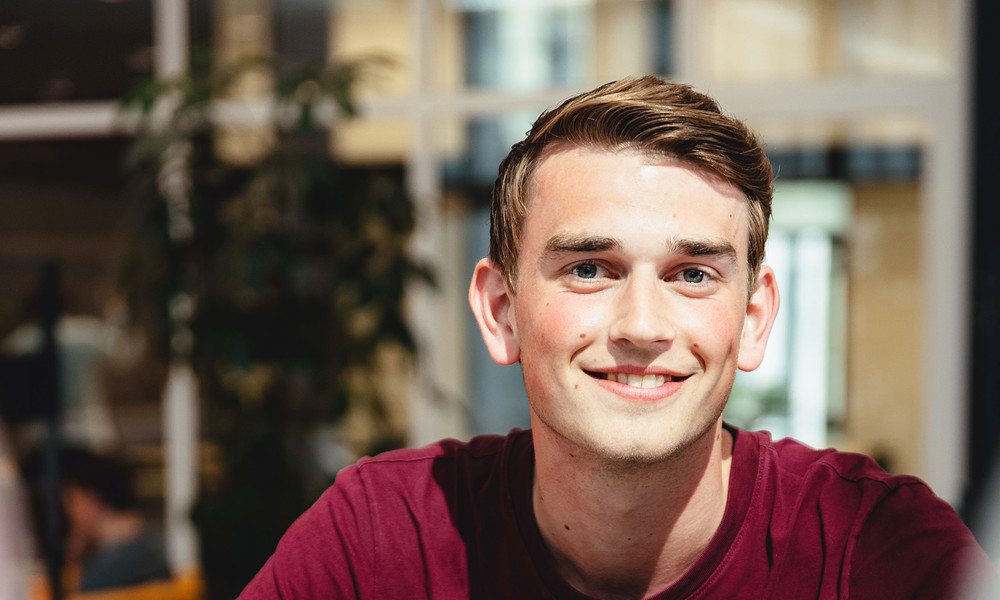'We had to find out how Arriva's business model would change.'
- Student project

In 2021, international transportation company Arriva launched the app Glimble in The Netherlands, enabling door-to-door travel using different modes such as shared bike, scooter or car. Together with students of Hochschule Furtwangen University (HFU) in Germany, students of the Master in International Business & Management (MIBM) had to explore how Arriva could further develop this application, taking into consideration strategic, economic, environmental, and societal implications. MIBM student Johan de Vries focused on the financial implications of the app and, together with his group, had to find out in what way the current business model of Arriva would change.
‘This assignment was part of the annual international master workshop, which is an intensive workshop of one week in which MIBM and HFU students work on business implications of international innovation projects. Our group had to explore two scenarios and find out how Arriva’s business model would change if (1) public transport would be free, or (2) if 80-90% of fares would be subsidised by the government. On the first day of the workshop, Arriva presented the app and on the second day we had some interesting workshops about creating a new business model canvas and we were working in groups on our assignment. Q&A sessions with employees from Arriva and Glimble allowed us to get answers to any questions we had.
Our group designed a road map for Arriva including yearly subscriptions for end consumers, volume discounts and B2B inclusion. We also recommended the inclusion of new services, such as comfort features (get a better chair), smart payment (check in with your phone), and even a ‘coming home safe’ option – a phone line that you can call when you’re walking home alone that tracks your location and gives a sign to Glimble when the connection is lost.
On the final day of the workshop we had to present our recommendations to Arriva in a pitch session. Arriva was impressed by the presentations and happy with the results. The winning group recommended a Web 3.0 solution where the community of clients has a say in which direction the company should go in order to offer the best solutions to the end-user. This group was even invited to present their advice at the Arriva headquarters in the Netherlands. The recommendations of our group inspired Arriva and they will take our advice into consideration as well.
On a broader level, this specific project helps Arriva make door-to-door mobility possible and eventually make the transport sector more sustainable and more convenient for the consumer. Currently, public transport in the Netherlands is rather expensive and not that attractive and sustainable. The services of Arriva could be the most sustainable and convenient option to transport multiple people in one go without the use of cars.
What is unique about this workshop is that you need to complete this project for a major international company and work together with new people from a different university, in a very short time frame. Social activities throughout the week helped us to get to know each other better and we also had a lot of fun together. Arriva was very dedicated to make this project a success and that motivated us to come up with the best possible results. This project taught me to perform under pressure and work together with people from various backgrounds. In the MIBM programme we are taught to think out of the box, be creative and look at a case from a different perspective. This really gives added value to international companies as we look at a business case objectively and can help change their way of thinking.’
How satisfied are you with the information on this page?